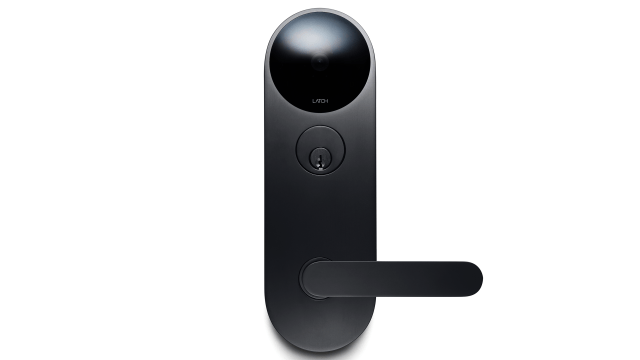Tenants at a property in New York City just struck a deal in what is both a wildly reasonable ask but also a crucial precedent at a time of increasing surveillance—their landlord has to give them physical keys to their building.
Five tenants in Hell’s Kitchen sued their landlord in March after the owners installed a Latch smart lock on the building last year. It is unlocked with a smartphone, and reportedly granted tenants access to the lobby, elevator, and mail room. But the group that sued their landlords saw this keyless entry as harassment, an invasion of privacy, and simply inconvenient.
“We are relieved that something as simple as entering our home is not controlled by an internet surveillance system and that because we will now have a mechanical key they will not be tracking our friends and our family,” 67-year-old tenant Charlotte Pfahl, who has lived in the building for 45 years, told the New York Post.
“It’s a form of harassment,” 72-year-old artist and tenant Mary Beth McKenzie told the Post in March. “What happens if your phone dies? I don’t want to be stuck on the street and I don’t want to be surveilled.”
And McKenzie also told CNET that her 93-year-old husband Tony Mysak wasn’t able to use a phone and was stuck inside the building after the owners installed the smart locks.
The settlement between the tenants and the landlords was released on Tuesday, in which the judge ordered the latter to give the former physical keys by that evening. As was previously mentioned, asking for a physical key for the building that you live in sounds like a completely sensible request, but the pushback signals a time in which those with control over our homes have the tools to make even walking through your front door a sacrifice of privacy.
Latch’s privacy policy indicates that the company collects and stores user information, including someone’s GPS location. That data is then shared with the owner of the building (in this case, the tenants’ landlords) and that in the event that the building is sold, this data may also be shared with the new owners.
“Unlike Facebook, Google, or Amazon services, though, Latch represents an opportunity to look at data privacy through something tangible: the barrier between yourself and your home,” Sage Lazzaro wrote in Medium in April. “By forcing you to sign a privacy agreement to open your front door, Latch helps us see how the internet of things has brought bad data policies off-line, normalizing invasive technology. It’s a new perspective on what’s really at stake when we sign that dotted line.”
And for the tenants of the Hell’s Kitchen building, the simple act of their landlord’s installing a piece of hardware forced them to give up personal data in exchange for easy access to their place of living. And Tuesday’s settlement marks a huge win for anyone who cares about a tenant’s autonomy over their own data.
